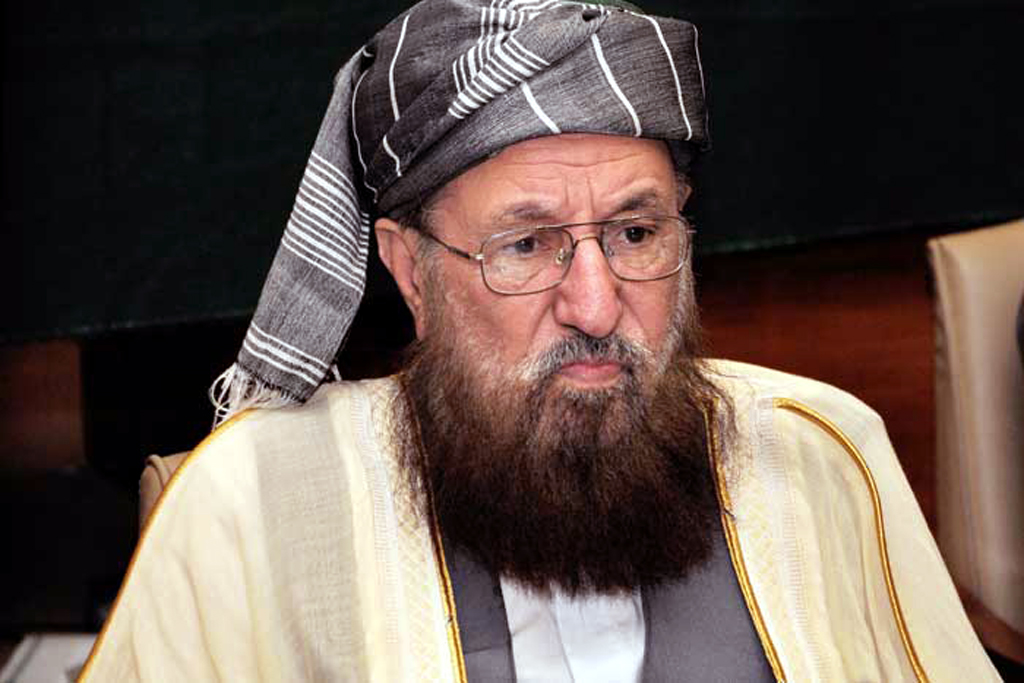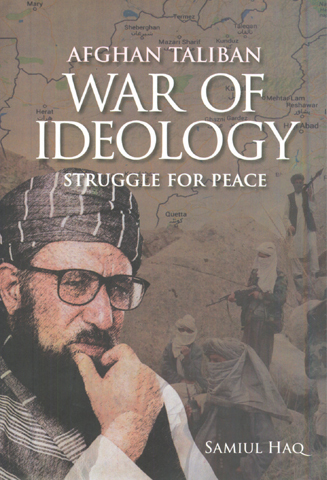The global environment of terrorism has created a worldwide disorder and insecurity by altering the traditional standards of evolving world politics. The theoretical foundations of terrorism and its conceptual association with international system have considerably shaken the well-structured and well–organized Westphalian state system. The modern state system encircled by clandestinely functioning terrorist networks is becoming more vulnerable to the emerging security challenges of new century. The wave of terrorism and its global expansion has forced the states to join the American–sponsored counter terror alliance. US–led war on terror, in reaction to the tragic incident of 9/11, has created a worldwide anti–terror alliance to overcome the growing effects of terrorism, and preventing the covert network of terrorist organizations and radical groups. The comprehension of the phenomenon of terrorism and its global outreach has become a topic of scholarly attention. The contesting definition of terrorism and reasons of its growth across the globe has launched a new debate among authors from diverse background. The theoretically solid and logically convincible studies conducted by various writers portray an ambiguous picture which reflects perplexing values and mystifying standards towards understand terrorism.
The international system surrounded by violent state actors has resulted in many sleepless nights of leaders and restless days for nations. The constantly increasing stress and persistently emerging panic in the international system have disturbed the traditional security mechanism of states. The leading architectures of national security strategies of states are passionately trying to formulate a comprehensive strategy to root out the problem of terrorism. Pakistan, a leading state in the fight against terror and a frontline nation in the US–initiated war against terrorism, has adopted several strategies to eliminate the countrywide wave of terrorist incidents. The government of Prime Minister Nawaz Sharif preferred to conduct peace dialogues with the supporters of Taliban and their sympathizers in 2014 but the failure to negotiate peace with these non–state actors considerably weakened the Nawaz government’s position. Samiul Haq, a religious scholars and an active politician participated in peace dialogues by supporting and advocating the international campaign of Taliban.
Haq, regarded as a Father of Taliban, is a chancellor of a Madrasah and one of the founding member of Mutahida Majlis-e-Amal (a political alliance of Pakistan’s leading political parties). He remained an active chairman of Difa-e-Pakistan Council (Defence of Pakistan Council), enthusiastic creator of Harkat-ul-Mujahideen (Jihadi Outfit), and Mutahida Deeni Mahaz (United Religious Front). He possesses an ultra–religious intellect based on Deoband sect and introduced his religious intellect at various national and international forums. He chaired the Senate Foreign Relations Committee (2004–2009) and has been a high level member of the Senate of Pakistan. As an unofficial spokesman of the Taliban during the government–Taliban negotiation, he tried genuinely to bring about peace in Pakistan. His pro–Taliban stance that is documented in Afghan Taliban: War of Ideology, Struggle for Peace discusses the history of the Afghan Taliban, their association to Pakistan (especially Akora Khattak), and an in-depth story of the peace talk proposed by Islamabad.
The seven chapters of the book along with a detailed account of five annexures attempt to provide a brief history of the orthodox movement of spiritually motivated students across the Pak–Afghan border. Haq’s study is divided into three parts: history of Darul Uloom Haqqania, details of peace talks and basic knowledge of Islam. The scholarly dimensions of the book try to offer a precise story of Taliban movement and their connection to Haq’s institution located in Khyber Pakhtunkhwa. The book starts the debate from Haq’s life and ends at Islamic thoughts while adding sixteen pages of the author’s photos as incalculable chapter 8, Historical Pictures of Maulana Samiul Haq and Haqqania. It could be called a biography of Haq’s religious politics and his services as an informal representative of Taliban and a great partisan of their radical thoughts.

The first chapter provides details of Haqqania Madrasah by explaining its main structure, curriculum, statues and resources. The second chapter provides an insight of the Taliban movement and its cross border affiliation/ infiltration and extension across Central Asia. Third and fourth chapters focus on the Kabul–Washington–Islamabad political triangle and biographical survey of Haq respectively. The fifth chapter describes a chronological review of the peace talks between Tehrik–e–Taliban Pakistan (TTP) and the Nawaz government. The last two chapters consist of fundamental Islamic values and their western misconception. The central theme developed in the eight chapters deliberately pronounces an ideological political system planned by Taliban and based on radical thoughts. Haq sturdily believes in the Taliban’s ideology, their political ideas cemented in Islamic thoughts, and their violent campaign. He suggests the critical or anti–Taliban gatherings of the west to embrace Islam instead of opposing its global expansion. The most import part of the book consists of long letters and speeches of Maulana Samiul Haq parallel to the story of Afghan Taliban.
As a broker of peace and a reluctant militant mentor, Haq blames Islamabad and holds it responsible for the dialogue failure by carrying out dichotic policies. He overtly defends the Taliban’s international standing, their violent operations and abhorrent thoughts. The hard–liner drastic story of book is a brief examination of Samiul Haq’s compassionate religious orthodoxy and its inflexible connection to Taliban. Moreover, the compiled views in the book gaudily show an unquestionable determination and undeniable commitment of Pakistan’s politicians to openly maintain its stable support and active backup of Taliban. The militant version of Islam and its insurgent roots overwhelmingly undermine the peaceful notion of Islamic thoughts, this is ignored by the author. While glorifying the Jihad culture and worldwide enlargement, the book overlooks the actual peaceful spirit of Islam.
This is a non–academic and radically tempting book which reflects Haq’s thoughts and personal views established by his sympathy for the Taliban. His feelings that are affiliated to Mullah Omar and Osama Bin Laden offer an account of the Taliban’s self–proclaimed description of religion by justifying their vicious mission. A frequent repetition of manipulated facts, contradictory arguments, and typological errors in the book casts doubts on the intellectual capabilities of the writer and the professional skills of the publisher. The interpretation of factual information and their indecorous translation in Taliban’s religion upsets the intellectual equilibrium of the book. An unbalanced approach coupled with prejudiced thought clearly demonstrates Haq’s Taliban inclination or Taliban–influenced mindset. The effort of Haq lacks methodological structure and a robust construction of analysis to convince the reader. The primary objective of the book is to counter the heavily propagating notions of holy war of Jihad and mainstream Taliban leadership, according to the writer. In reaction to emerging criticism on violent religious features, the author ingenuously rejects the potential of the west. This is a volume from Pakistan that offers a heavy pro–Taliban stance, detailing the natural genesis of the transnational Taliban movement.





